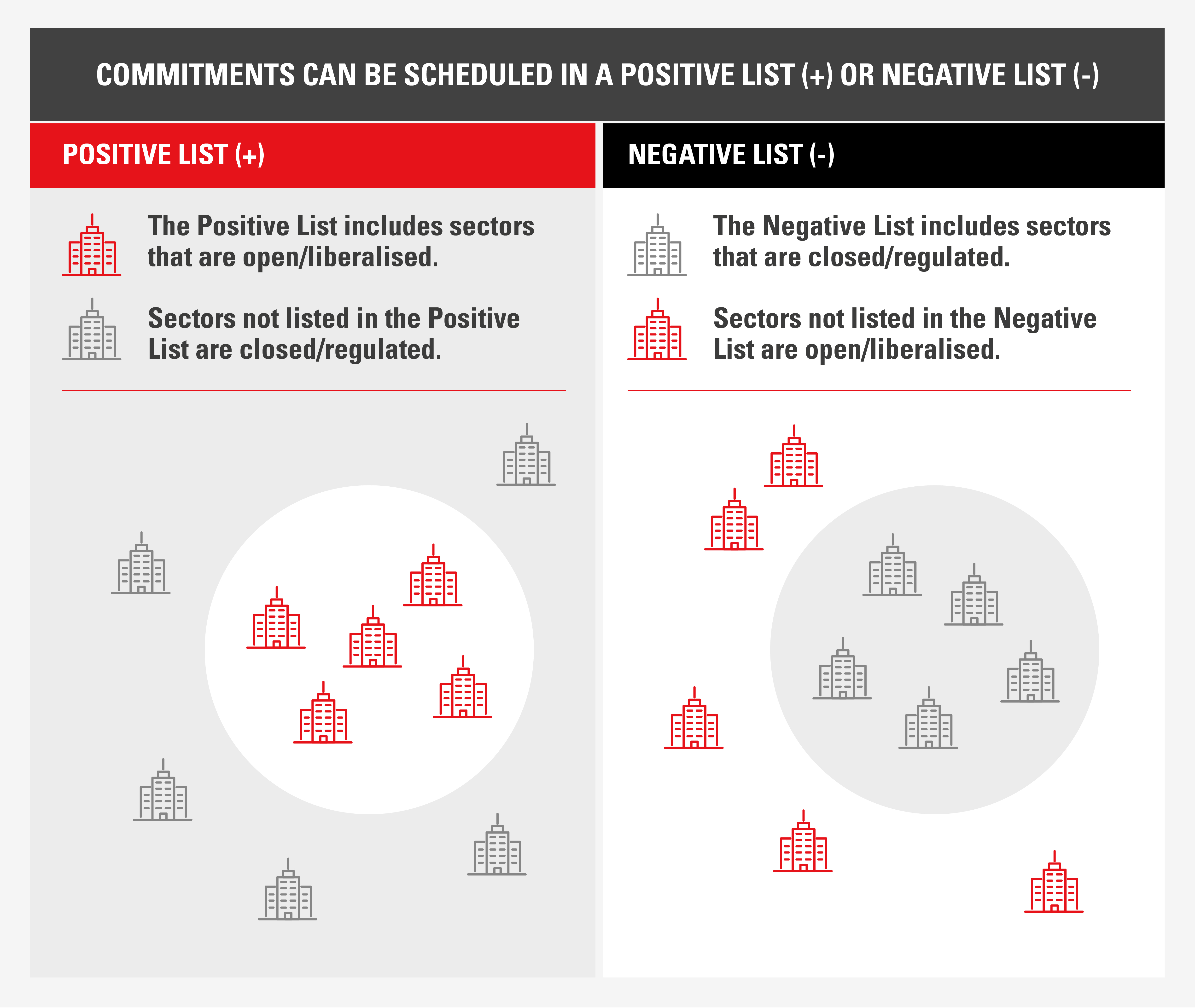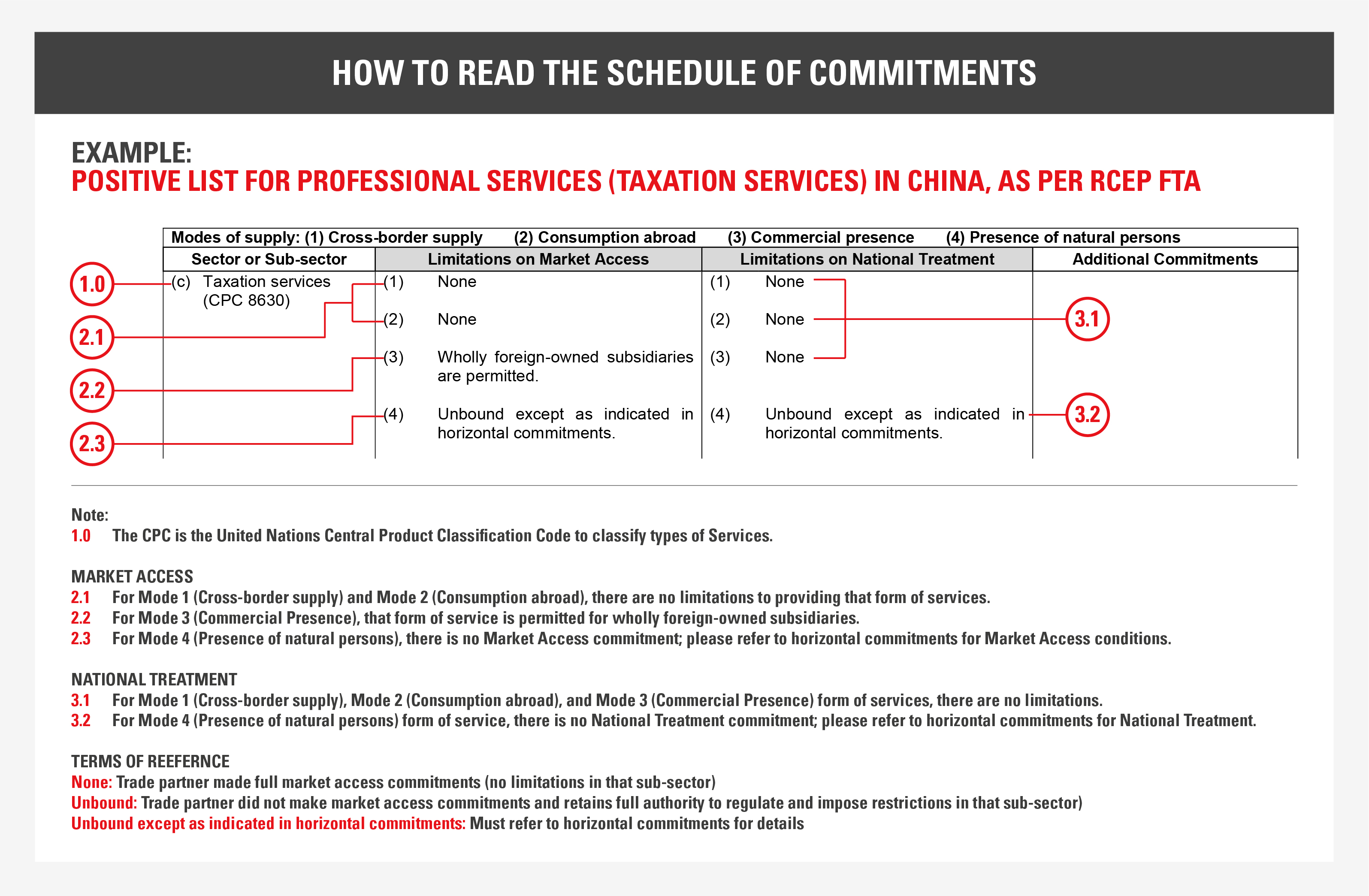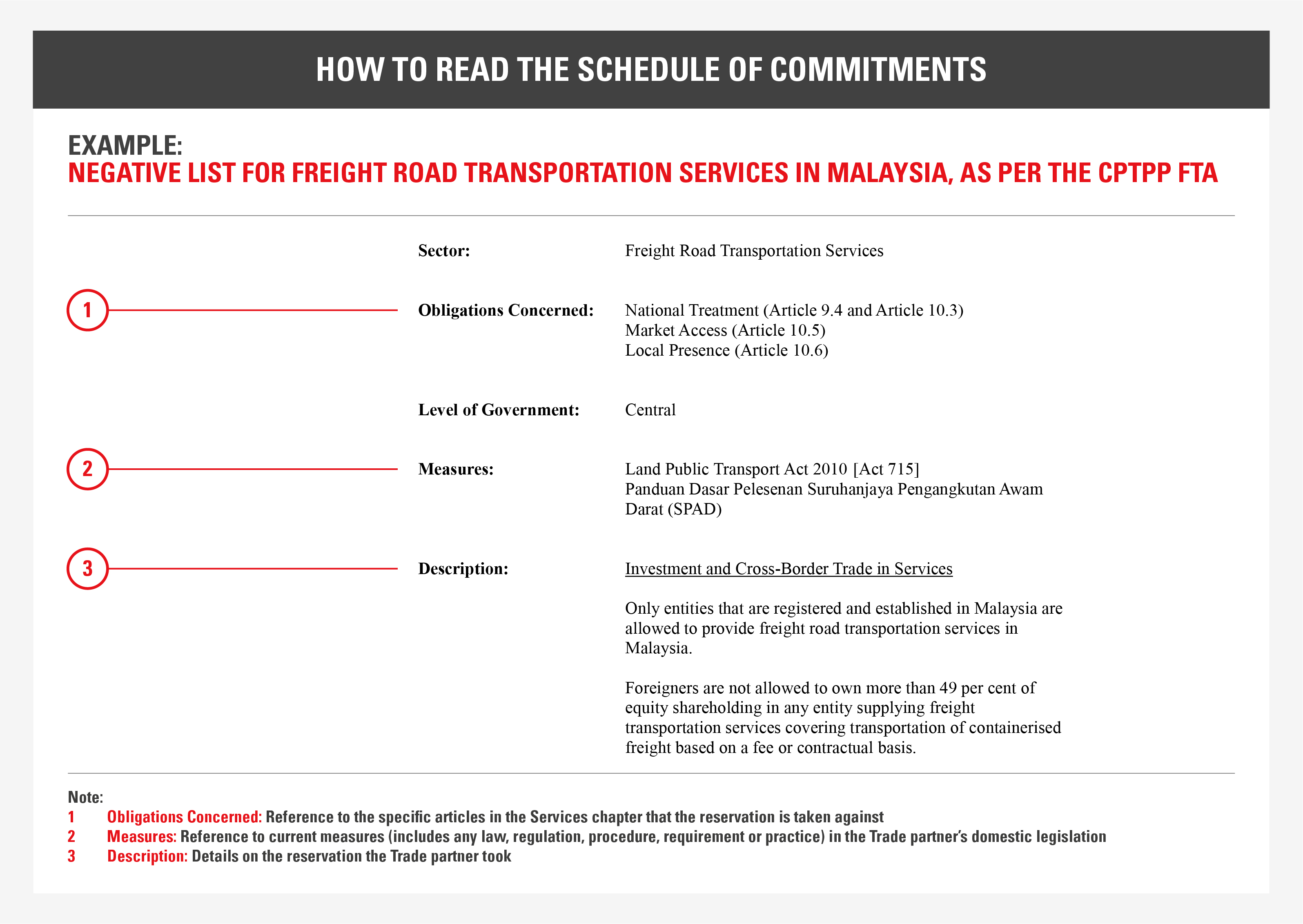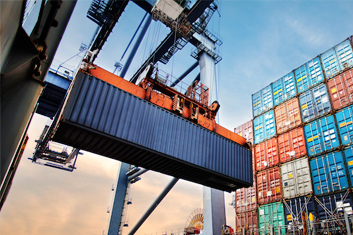Overview
Unlike trade in goods, where benefits are based on tariff savings, trade in services focuses on the trading environment. Free Trade Agreements (FTAs) seek to safeguard market access and ensure conducive conditions where service suppliers can thrive.
- What is a Service?
A service is anything that is not a ‘good’. Examples include but are not limited to:
- Distribution services (wholesale trade, retailing services, etc)
- Healthcare and education services
- Professional services (legal, accounting, etc)
- Transport services (air, maritime, road, etc)
- 4 Services classifications according to the World Trade Organisation (WTO)
- How does a Trade in Services Chapter work?
When a Singapore company supplies a service in an overseas market, there may be market access barriers. FTAs reduce or remove barriers such as long admin procures, discrimination, lack of transparency, restriction of transfer of funds, etc. FTA partners are obliged to uphold the agreements within the FTA Services Chapters, which result in a more predictable operating environment. - How does a Trade in Services Chapter help companies?
The FTA Trade in Services chapters provide companies with information that can help them better plan their export journey (e.g. information on potential market access entry requirements, specific laws to follow, guarantees of transparency in licensing and regulations).
Components of a Trade in Services Chapter
- Overview
An FTA Services Chapter has two components:
- Services Chapter
- Lays out commitments for parties in the FTA to follow
- Schedule of Commitments
- Annexes which list the economic sectors the Chapter commitments apply to
Note:
- Not all sectors in an economy are open, i.e. there is no free market access for all sectors
- Please read the annexes for details on government regulations and level of liberalisation per sector
- Commitments can be scheduled into either a positive (+) or negative (-) list format
- Key Trade in Services Chapter provisions
Some of the key Services provisions in an FTA include, but are not limited to:
- Definitions & scope articles
- Includes definition of a Service and excluded Services
- Market Access Article
- Agreement to not impose certain conditions that restrict market access (e.g. no. of service suppliers allowed in a certain sector)
- Treatment Articles
- Fair treatment for Services suppliers
- Transfers
- Commitment to allow free transfer of Services-related capital except under certain circumstances
- Domestic Regulation
- Commitments to have reasonable requirements to supply a service (e.g. licensing requirements)
- Exclusions & Exceptions
- Ability for trade partners to safeguard own interests for legitimate reasons e.g. security & public health
- Schedule of Commitments
Different FTAs have different schedules of commitments, which can come in the form of a Positive List or Negative List.

Examples of the Services Schedule Commitments (illustration purposes only)
Positive List
Take note of the information in Items 2.1 to 3.2 on the market access for supplying a particular service into the market, and factor them into your business decisions when planning to enter a market.
Negative List
Take note of the description in Item 3 for supplying a particular service into market, and factor them into your business decisions when planning to enter a market.
How to use FTAs for Trade in Services
Step 1: Determine the FTAs for the intended market
- Search for your target market in the list of FTAs.
Step 2: Determine the mode of the service that you are providing
- Refer to the 4 modes of Services mentioned above.
Step 3: Check if the service(s) you want to provide is covered by the FTA
- Refer to the FTA Services Annexes on whether the service you provided is covered.
- Check whether the commitments are in positive or negative list format (Services listed in a positive list benefit from market access; Services listed in a negative list are subject to various degrees of regulation)
Step 4: Next Steps
- Factor the information into your export journey, e.g. an FTA may reveal that there are foreign shareholding requirements for establishing a Legal Firm supplying Legal Services in a market (i.e. mode 3). You can plan to address this requirement when entering the intended market.






